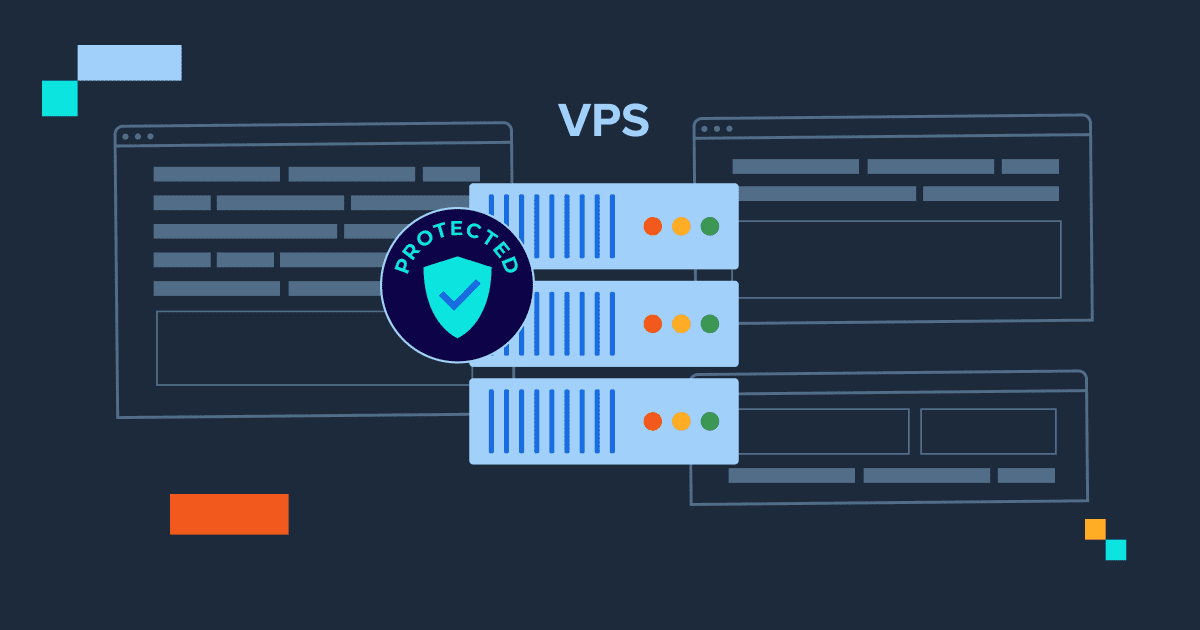Running a smooth and responsive game server requires a hosting solution that can handle high traffic, low latency, and custom configurations. While shared hosting isn’t an option for serious gamers, and dedicated servers might be too expensive for small to mid-sized communities, Virtual Private Servers (VPS) offer the perfect middle ground. VPS for game servers gives you dedicated resources, root access, and the flexibility to install and configure your server for the best gaming experience.

Why VPS is Ideal for Hosting Game Servers
A VPS allows you to host game servers with isolated resources such as CPU, RAM, and storage, meaning your performance won’t be impacted by other users. You can install the exact game server software you need, fine-tune the server settings, and scale up as your player base grows. Unlike shared hosting, a VPS gives you full control of the environment — making it a popular choice for games like Minecraft, ARK: Survival Evolved, Rust, CS:GO, and Valheim.
Since gaming requires low latency and high availability, VPS hosting gives you the power to choose your data center location, install DDoS protection, and use performance-enhancing tools. You also have the freedom to automate restarts, backups, and updates through scripts, which can significantly reduce server downtime.
Best VPS Providers for Game Servers
Not all VPS providers are created equal when it comes to gaming. You need a host that offers excellent uptime, high-performance hardware, and gaming-optimized features. Several providers stand out in the VPS market for game server hosting.
Tezhost:
One of the most popular options is Tezhost, known for its high-speed SSD storage, global data centers, and developer-friendly environment. It supports low-latency connections and is perfect for hosting multiplayer games that require stability and fast data transfer.
Vultr
It is another strong choice, offering cloud VPS plans with customizable performance. With data centers located in major cities worldwide, Vultr is ideal for hosting latency-sensitive game servers close to your player base.
OVHcloud
OVHcloud is favored by many gamers due to its robust anti-DDoS protection and affordable pricing. Their VPS servers come with NVMe SSDs, a critical feature for read/write-intensive game environments like ARK or Rust.
Contabo
It provides high-resource VPS at lower costs, making it perfect for budget-conscious gaming communities. While their data centers are mostly in Europe, they’re expanding globally and offer excellent value for money.
DigitalOcean,
It is although more developer-centric, also offers flexible VPS solutions suitable for game servers. Their documentation and community support make it easy for beginners to get started.
Choosing the Right VPS Specifications for Your Game
When selecting a VPS plan for your game server, it’s essential to match the server’s hardware with your game’s resource demands. Not all games are created equal. For example, Minecraft is CPU-intensive and benefits from single-thread performance, while games like ARK demand more RAM and disk I/O speed.
You should aim for a VPS with at least 2 to 4 vCPUs and 4 to 8 GB of RAM for small to mid-sized servers. SSD or NVMe storage is crucial to reduce map load times and minimize lag. Bandwidth and data transfer limits should also be considered, especially if your game server supports voice chat, frequent downloads, or mod files.
Your choice of operating system can also impact performance. Most game servers run efficiently on Linux distributions like Ubuntu or Debian, though Windows VPS is needed for certain titles that require a GUI or specific Windows components.
Optimizing VPS for Game Server Performance
After deploying your VPS, optimization becomes the key to reducing latency, minimizing lag, and delivering a smooth gaming experience. The first step is to keep your server lean — disable unnecessary services and background processes that consume CPU and RAM. Use tools like htop or top to monitor usage and identify bottlenecks.
Network optimization is equally important. Choose a VPS with a data center closest to your primary player base. Enable TCP optimizations and use firewalls like UFW to block unnecessary ports. Configuring Quality of Service (QoS) can also prioritize gaming traffic over less critical processes.
Installing performance monitoring tools such as Netdata, Prometheus, or Grafana can help you track server health and get alerts before any resource issues affect gameplay. You should also keep your game server software and OS updated to the latest versions to benefit from performance patches and security fixes.

Implementing DDoS Protection and Security for Game Servers
Game servers are frequent targets for DDoS attacks, which can crash your server or severely disrupt gameplay. A VPS gives you the control to implement your own security measures, but your provider’s protection is your first line of defense. Choose a host that includes built-in DDoS mitigation as part of their VPS offering.
Beyond that, you should harden your VPS by using firewalls, intrusion detection systems, and secure SSH access. Disable root login, change the default SSH port, and use SSH keys instead of passwords. Install fail2ban to automatically block brute-force attempts and configure regular backups in case of a compromise.
For games with admin panels or remote access tools, make sure those ports are secured with strong passwords, IP whitelisting, and if possible, two-factor authentication.

Using Game-Specific Optimization Techniques
Each game has its own set of performance tweaks and configuration files that can drastically impact server speed. For example, Minecraft server admins can use tools like PaperMC or Spigot to reduce resource consumption while maintaining plugin compatibility. Adjusting view distance, entity tick limits, and garbage collection settings can significantly improve performance.
In CS:GO, server tickrate, interpolation settings, and CPU affinity can be fine-tuned for better gameplay responsiveness. For ARK, adjusting parameters like MaxPlayers, MaxTickRate, and Threading options can help reduce lag and improve stability.
Always consult the game’s documentation or community forums for best practices. Many popular games have active modding and server admin communities that share optimized config files and performance tips.
Automating Backups and Updates
Nothing is worse than losing your progress or player data due to a crash or human error. With a VPS, you can schedule automated backups of your entire game server or just essential files like world saves, player data, and configuration files.
Use tools like rsync, cron jobs, or third-party services to back up files to a separate location. Cloud storage integration can also be set up using providers like AWS S3, Google Cloud Storage, or Dropbox.
For updates, many game servers have built-in CLI tools for patching. Automating the update process ensures your server is always running the latest version with security patches, bug fixes, and performance improvements.
Monitoring Server Uptime and Latency
A laggy or frequently offline server drives players away quickly. Use uptime monitoring tools such as UptimeRobot, Pingdom, or BetterStack to receive instant alerts if your server goes down. Latency monitoring can help you detect spikes that could affect gameplay, allowing you to act before players experience issues.
Load testing tools can also simulate player activity, helping you test your server’s stability under stress. This is particularly useful after making significant changes or launching a new world or mod.
Regular monitoring not only keeps your server running optimally but also helps you build a more reliable and enjoyable experience for your gaming community.
Final Thoughts on Using VPS for Game Servers
A VPS is an excellent hosting solution for gamers who want performance, flexibility, and control without the high cost of a dedicated server. By choosing the right provider, configuring your VPS correctly, and applying optimization techniques specific to your game, you can host a lag-free, secure, and stable server that keeps players coming back.Whether you’re managing a private server for friends or hosting a public server for thousands, VPS hosting by Tezhost gives you the power to scale, customize, and fine-tune your game environment exactly the way you want. For serious gamers, developers, or community builders, a properly optimized VPS is the backbone of any successful game server.



